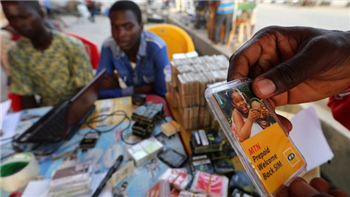
You might think the job of a statistician is one of the dullest in the world, up there with accounting and chicken sexing. But not in Africa. Yemi Kale is statistician general of the National Bureau of Statistics of Nigeria. His task is exhilarating. It is also exhausting.
你或许会认为统计学家的工作是世界上最沉闷的工作之一,可以与会计师和“小鸡性别鉴定师”相提并论。但在非洲,情况并非如此。叶米•卡莱(Yemi Kale)担任尼日利亚国家统计局(NBS)统计长。他的工作既令人兴奋,也让人疲惫不堪。
Mr Kale is not infrequently subjected to threats, particularly when he finds that poverty levels in a certain state are higher than thought. Once, he says, he sent five of his 3,000 workers to collect data from a remote part of Ekiti, in the west of the country. Villagers surrounded the intruders and marched them to the chief, who threatened to kill them. Only intervention from Mr Kale’s headquarters calmed things down.
卡莱曾不止一次受到威胁,尤其是当他发现某个州的贫困水平超出人们之前意识的时候。他手下有3000名工作人员。他说,有一次,他派了5名统计员到尼日利亚西部的埃基蒂州(Ekiti)一个偏远地区收集数据。但村民们包围了这些不速之客,并将他们带到族长面前,后者威胁要杀死他们。只是在国家统计局总部介入之后,事情才平静下来。
Mr Kale must be creative. When people are asked how much they earn, suspicion of authority makes them underestimate. Ask them how much they spend, however, and, chest puffed up, they will give a much higher number. In surveys, getting the question right matters.
卡莱不得不发挥创造力。当人们被问及收入时,对当局的疑虑通常促使他们选择少报。然而,当被问到支出多少时,他们会挺起胸膛,给出一个高得多的数字。在调查中,问对问题很重要。
Mr Kale cannot take much at face value. He even checks his workers’ movements through GPS. Otherwise, staff may be tempted to sit at home and make up the numbers.
卡莱什么都不能太相信。他甚至通过全球定位系统(GPS)查看手下工作人员的踪迹。不然的话,他们有可能会坐在家里编造数据。
It was under Mr Kale that Nigerians woke up one day in 2014 to discover that their economy was 89 per cent bigger than previously imagined, making it Africa’s largest. The overnight “economic miracle” happened after a rebasing of data to better reflect the changing nature of the economy. Booming sectors, such as banking, telecoms and film, which had barely figured in previous calculations, were suddenly revealed to be contributing lavishly to gross domestic product.
在卡莱的努力下,2014年的某一天,尼日利亚人一觉醒来,突然发现本国经济比此前设想的总量高出了89%,使该国成为非洲最大经济体。这一“经济奇迹”在一夜间出现,是因为调整了数据基线,以更好地反映经济的变化。银行业、电信业、电影等蓬勃发展的行业在此前的统计中很少被计入,而现在人们突然发现,这些行业对国内生产总值(GDP)贡献巨大。
Nigeria has one of the most sophisticated statistical operations on the continent. Spare a thought for less fortunate countries where calculating GDP is not much better than guesswork. In his book Poor Numbers, Morten Jerven compares estimates of African GDP for the year 2000 by the World Bank, the University of Pennsylvania and the University of Groningen — three important sources of national income data. They are wildly inconsistent; one ranked Liberia as the second-poorest nation in Africa. Another had it 20 places higher.
尼日利亚是非洲拥有最像样统计运作的国家之一。可怜那些不那么幸运的国家,它们的GDP统计比猜数游戏强不了多少。在《可怜的数据》(Poor Numbers)一书中,莫滕•杰尔文(Morten Jerven)比较了世界银行(World Bank)、美国宾夕法尼亚大学(University of Pennsylvania)以及荷兰格罗宁根大学(University of Groningen)对2000年非洲GDP的估算。这3家机构都是国民收入数据的重要来源。但它们给出的数据相当不一致:一家将利比里亚列为非洲第二贫穷的国家,而另一家给出的排名高了20位。
Part of the problem is underfunding. When Mr Kale took up the job, he had a budget of $1m, now increased to $5m. Mr Jerven recalls visiting the Central Statistical Office in Lusaka only to find a crop survey delayed because vehicles were not roadworthy. In 2010, he writes, Zambia’s national accounts were being prepared by a single soul.
部分问题在于资金不足。当卡莱接手这项工作时,他只有100万美元的预算,现在增加到了500万美元。杰尔文回忆称,他曾经走访赞比亚首都卢萨卡的中央统计办公室(CSO),却发现一项农作物调查因为车辆无法上路行驶而被延误。他写道,2010年,赞比亚的国民经济核算是由一个人完成的。
Even if there were sufficient people to measure it, much economic activity is almost invisible. Neither subsistence farmers, hawkers, itinerant labourers, pickpockets nor prostitutes are likely to be taxed. None will appear, in any meaningful way, in national statistics.
即便有足够的人手进行统计,很多经济活动也几乎都是无形的。不论是勉强维持生计的农民、沿街叫卖的小贩、流动工人、扒手,还是妓女,都不太可能交税。他们不会以有意义的方式出现在国家的统计数据中。
In Zimbabwe, only 6 per cent of the working population is employed in the formal sector, according to the national statistics office. “When you try to read the economy from a conventional view, you totally misread it,” says Patrick Zhuwao, a cabinet member. “There’s so much that’s unrecorded. It’s like trying to use a tape measure to figure out how much Coke is in this glass.”
津巴布韦国家统计局的数据显示,该国只有6%的人口在正式部门就业。“当你尝试用常规视角解读经济时,你根本看不懂,”内阁成员Patrick Zhuwao说,“有如此多的活动未被录入。这就像试图用卷尺来测量这个玻璃杯中的可乐一样。”
In 2001, MTN, a South African telecoms company, bid $285m for a mobile licence in Nigeria, based on its estimate that a maximum of 15m people would ever be able to afford handsets. A decade later, there were 80m Nigerian mobile phone subscribers of which MTN, by then making a stonking profit, had 40m. “Where did Nigerians find all this hidden money to buy phones?” asks Miles Morland, a veteran investor in Africa, who argues that official statistics wildly underestimate the continent’s true wealth.
2001年,南非电信公司MTN出价2.85亿美元竞购尼日利亚的移动通信牌照,这一报价基于的估计是未来最多有1500万尼日利亚人能买得起手机。10年后,尼日利亚移动电话用户达到了8000万,其中4000万是MTN的用户,这让该公司大赚了一笔。长期活跃于非洲的资深投资人士迈尔斯•莫兰(Miles Morland)问道:“尼日利亚人从哪里找出这些私房钱来购买手机呢?”他认为,官方统计数据严重低估了非洲大陆的真实财富。
It can go both ways. Last year, Nestlé cut its Africa workforce by 15 per cent after overestimating the size of the market. In Kenya, for example, the company cited numbers estimating a middle class of only about 800,000 in a population of 44m. Most of the would-be middle class in the cities were too poor to afford its products, it found.
这种误判可能是双向的。去年,雀巢(Nestlé)在非洲裁减了15%的工作岗位,原因是此前高估了这一地区的市场规模。例如,雀巢估计,肯尼亚的4400万人口中,大概只有80万属于中产阶层。该公司发现,城市中的多数准中产阶层太穷了,买不起雀巢产品。
Numbers matter to donors, too. They back countries that are doing well and cajole the laggards, but what happens if they cannot tell the difference?
统计数据对援助机构也很重要。他们支持表现较好的国家,劝导落后的国家,但如果他们无法区分这两类国家,结果会怎样呢?
In the 1970s, Derek Blades, an economist with the OECD, found that reported growth rates had margins of error of at least 3 percentage points. In other words, a country reporting a 3 per cent growth rate might actually be growing at 6 per cent — or not growing at all. Four decades later, Mr Jerven considers Mr Blades to have understated the problem. The only thing we know about African economies is that we do not know much at all.
上世纪70年代,经合组织(OECD)经济学家德里克•布莱兹(Derek Blades)发现,报告的增长率至少有3个百分点的误差。换句话说,宣称经济增速为3%的国家有可能实际增速为6%——也可能为零。40年后的今天,杰尔文认为布莱兹低估了问题的严重性。对于非洲各国经济,我们唯一知道的就是自己根本不了解多少。












